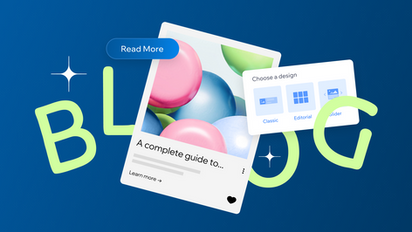Domain Hosting and Web Design Checklist
Domain Hosting and Web Design Challenges
Domain Hosting and Web Design
In today’s digital age, having a strong online presence is crucial for businesses of all sizes. One of the simplest and most effective ways to establish an online presence is by building a one pager website. A one pager website is a single webpage that provides all the necessary information about your business, products, or services in a concise and visually appealing manner. In this article, we will discuss the benefits of having a one pager website and provide a step-by-step guide on how to build one.

Domain Hosting and Web Design Resources
Domain Hosting and Web Design
What is responsive web development?
Responsive web development is the practice of designing and building websites in a way that allows them to adjust and adapt to different screen sizes and devices. This means that a website will look and function properly on a desktop computer, a smartphone, a tablet, or any other device with a screen.
There are several key components of responsive web development that make it effective. These include:
1. Flexible grids: One of the main principles of responsive design is the use of flexible grids that can scale proportionally to fit different screen sizes. This allows for a website to maintain its layout and structure regardless of the device it is being viewed on.
2. Media queries: Media queries are CSS3 modules that allow developers to apply different styles based on the size of the screen. By using media queries, developers can create specific styles for different screen sizes, ensuring that a website looks and functions properly on all devices.
3. Fluid images: Another important aspect of responsive design is the use of fluid images, which can scale proportionally to fit different screen sizes. This prevents images from becoming distorted or cut off on smaller screens, ensuring a consistent user experience.
4. Mobile-first approach: With the increasing use of smartphones and tablets, it has become common practice to design websites with a mobile-first approach. This means that developers start by designing the mobile version of a website first, and then adapt it for larger screens. This approach ensures that a website is optimized for mobile devices, which are used by a majority of users.
Benefits of responsive web development
There are several key benefits of responsive web development, which make it essential for modern website design. These include:
1. Improved user experience: Responsive websites provide a seamless user experience across all devices, ensuring that users can easily navigate and interact with a website regardless of the device they are using. This leads to higher user satisfaction and increased engagement.
2. Higher conversion rates: With the increasing use of smartphones for online shopping and browsing, it is essential for e-commerce websites to be responsive. Responsive design ensures that users can easily make purchases and complete transactions on any device, leading to higher conversion rates and increased sales.
3. Better SEO performance: Search engines such as Google prioritize responsive websites in search results, as they provide a better user experience. Responsive design can improve a website’s SEO performance, leading to higher rankings and increased organic traffic.
4. Cost-effective: Responsive web development can be cost-effective in the long run, as it eliminates the need for separate mobile websites or apps. By designing a single responsive website, developers can ensure that the website looks and functions properly on all devices, reducing the need for additional resources and maintenance.
Challenges of responsive web development
While there are numerous benefits to responsive web development, there are also some challenges that developers may face. These include:
1. Compatibility issues: With the wide variety of devices and screen sizes available, developers may encounter compatibility issues when designing a responsive website. It is important to test a website on different devices and browsers to ensure that it looks and functions properly on all platforms.
2. Performance optimization: Responsive websites can be slower to load on mobile devices, especially if they contain high-resolution images or complex features. It is important for developers to optimize the performance of a website to ensure fast loading times and a seamless user experience.
3. Complexity of design: Designing a responsive website can be more complex than designing a traditional website, as developers need to consider how the layout will adapt to different screen sizes. It is important to create a flexible design that can scale proportionally and maintain a consistent user experience across all devices.
To ensure that your website meets accessibility standards, it is important to use a website accessibility checker. These tools help you identify areas on your website that may not be accessible to all users, allowing you to make the necessary changes to improve your site’s accessibility.
One popular website accessibility checker is the Web Content Accessibility Guidelines (WCAG) checker. WCAG is a set of guidelines for making web content more accessible to people with disabilities. These guidelines are broken down into four principles: perceivable, operable, understandable, and robust. The WCAG checker evaluates your website based on these principles and provides you with a list of issues that need to be addressed to improve accessibility.
Another website accessibility checker is Axe, which is a free open-source tool developed by Deque Systems. Axe scans your website for accessibility issues and provides detailed reports on areas that need improvement. The tool is easy to use and provides actionable recommendations for improving accessibility.
In addition to these tools, there are also browser extensions like Wave and AInspector that allow you to check the accessibility of your website in real-time as you browse. These extensions highlight accessibility issues on your site and provide recommendations for fixing them.
When using a website accessibility checker, it is important to keep in mind that no tool is perfect. While these tools can help identify common accessibility issues, it is also important to conduct manual testing to ensure that your website is truly accessible to all users. Manual testing involves using assistive technologies such as screen readers and keyboard navigation to navigate your site as a person with disabilities would.
It is also important to stay updated on the latest accessibility guidelines and best practices. The web accessibility landscape is constantly evolving, and it is important to stay informed about new developments in the field. By staying informed and regularly testing your website for accessibility, you can ensure that your site is accessible to all users.
In addition to ensuring compliance with accessibility laws and guidelines, improving website accessibility also benefits your business. By making your website more accessible, you can reach a wider audience and improve the user experience for all visitors. This can lead to increased engagement, higher conversion rates, and improved search engine rankings.

Quick Domain Hosting and Web Design Guide
Domain Hosting and Web Design
Conclusion
Web design is a critical component of creating a successful online presence and can significantly impact the performance of your website. By following best practices in web design and focusing on user experience, you can create a visually appealing, user-friendly, and functional website that attracts and retains visitors, drives conversions, and enhances brand reputation. Remember to define your goals, know your audience, keep it simple, optimize for mobile, use high-quality visuals, ensure clear navigation, prioritize loading speed, and test and iterate for continuous improvement. With these tips in mind, you can create an effective website that stands out in the digital landscape and drives success for your business.

